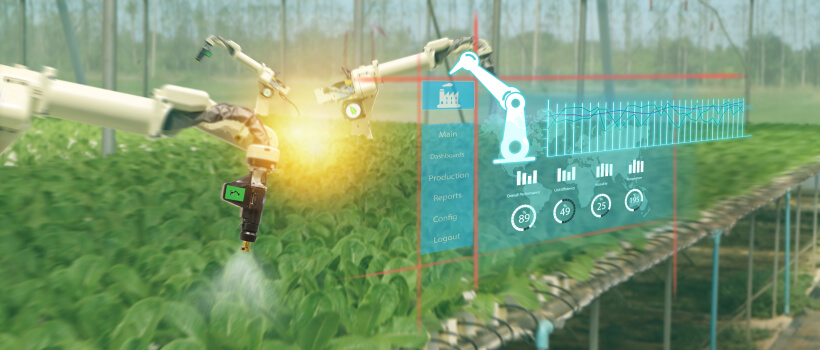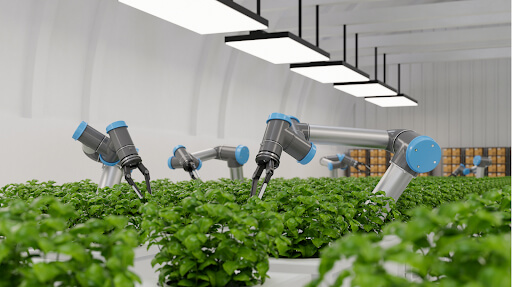 1-800-805-5783
1-800-805-5783 
As the world’s population continues to grow, the demand for food increases proportionately. To meet these demands, the agricultural sector is turning to technology, specifically agricultural robots, to revolutionize farming practices. This exciting evolution is leading us into an era of robotic farming, where the traditional methods of farming are transformed into more efficient, precise, and sustainable operations.
Agricultural robots, or agri-bots, are machines designed to perform tasks that farmers traditionally would have done by hand or with heavy machinery. These farm robots can do everything from sowing seeds and harvesting crops to inspecting fields for signs of pests or disease.
The use of agricultural robots offers numerous benefits. They can operate around the clock, increasing the productivity of farming operations. Additionally, these robots can perform tasks with a level of precision that humans can’t match, reducing waste and increasing crop yields.
Moreover, the use of robots in farming can help overcome labor shortages, a problem many rural areas face. By automating tedious tasks, farm robots also improve working conditions, allowing farmers to focus on more strategic aspects of their business.

Robotic farming is not just about efficiency and productivity; it’s also about precision and sustainability. With the ability to collect and analyze data, agricultural robots can help farmers make more informed decisions about watering, fertilization, and pest control, reducing the environmental impact of farming.
For instance, some farm robots are equipped with sensors and artificial intelligence to identify weeds among crops. Instead of spraying the entire field with herbicides, these robots can pinpoint and eliminate weeds, significantly reducing the amount of chemicals used.
The future of farm robots is promising. As technology advances, these machines will become more sophisticated and capable of performing a wider range of tasks. From automated tractors that can plow and sow fields without a driver to drones that can monitor crop health from the sky, the potential applications for agricultural robots are vast.
Moreover, as more data is collected, farmers will be better equipped to implement precision farming practices, improving the sustainability of agriculture. With the support of farm robots, farmers can focus on managing their operations more efficiently, creating a sustainable and prosperous future for farming.
Embracing agricultural robots in farming operations will be key to overcoming many of the challenges faced by the agricultural sector. As the world continues to grapple with the realities of a growing population and climate change, the advent of robotic farming and the rise of the farm robot may just hold the key to a more sustainable and efficient future for agriculture.